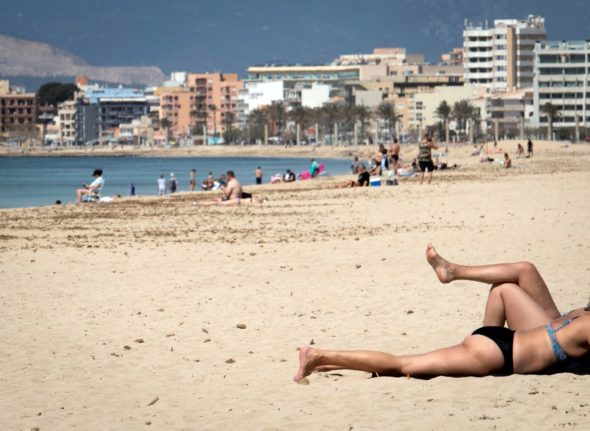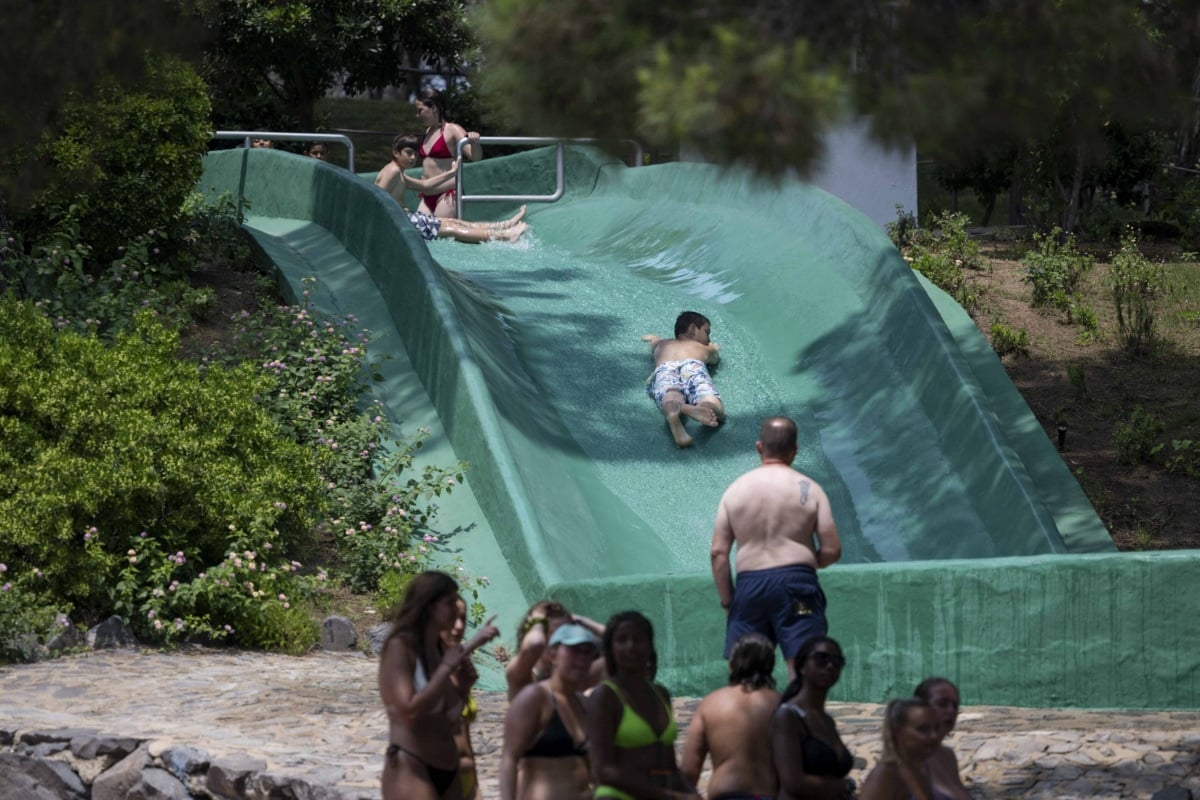With lingering inflation, drought conditions, rising rents and building social tension surrounding the impact of mass tourism on Spanish society, summer 2024 could be an eventful one in Spain for a number of reasons.
It will probably also be more expensive than it was in the past, especially if you’re staying in a hotel or tourist apartment.
This follows a bumper Easter period that saw high occupancy and price rises across the country, and if forecasts and industry experts are anything to go by, it’s a trend that will continue into the summer season.
READ ALSO: ‘The island can’t take it anymore’: Why Tenerife is rejecting mass tourism
Hotel prices March increased by 10 percent compared to the same period in 2023, and have now experienced 34 consecutive months of price increases.
The average hotel room in Spain during March cost €109.2 per night, according to Hotel Tourism Situation data published by Spain’s National Statistics Institute (INE).
How much more expensive will flights to Spain be this summer?
Firstly, flights. Aviation industry experts suggest that a perfect storm of conditions could cause the price of flights to increase for summer 2024. A shortage of commercial planes, caused mainly by a combination of problems on Boeing’s production line and Airbus having difficulties with engine manufacturers, will likely drive up prices around the world.
These “are factors that don’t make it easy for prices to fall,” according to Pere Suau, professor of Economics and Business Studies at the Universitat Oberta de Catalunya, who admitted that “it is difficult to measure the extent to which” they will go up. The key, in Suau’s opinion, is to see how demand will be affected by price rises. “As of today prices are rising, but demand is tolerating it, demand continues to grow,” he adds.
Reports in the Spanish media suggest that prices on budget airlines like Ryanair could rise by around 10 percent.
READ ALSO: EasyJet opens Spanish base in Alicante with ten new routes
How much more expensive will hotels in Spain be this summer?
So, flights will likely be more expensive this year. But what about hotels?
It’s difficult to say exactly by how much hotel prices will have risen by summer, but most estimates put it at somewhere in the 8-12 percent range, depending on factors such as location, occupancy, type of accommodation (ie. is it luxury or budget) and length of stay.
However, despite that, most experts seem to think the price rises will be slightly less than the 2023-23 year-on-year increases, when average hotel room costs shot up by 16.5 percent, according to statistics from SRT and Cushman & Wakefield.
Albert Grau, partner at Cushman & Wakefield’s Hospitality department in Spain, told El Periódico de España that: ‘We expect there to continue to be growth in prices… although it will be more moderate, in single digits, compared to the large increase in the last year.”
Spanish news outlet La Sexta reports that hotel rooms in the summer will be on average 11 percent more than last year, according to figures from INE and Travelgate.
Forecasts by American Express Global Business Travel (Amex GBT) put Barcelona, long a popular tourist destination, among European cities where a significant increase in hotel prices is expected, with a projected rise of 9 percent. Other Spanish cities, such as Bilbao and Valencia, are forecast to see price jumps of around 8.5 percent.
In Andalusia, hotel sector insiders in Andalusia are expecting a 7 percent increase overall this summer, according to Trinitario Bertore, director of Hotel Plaza Nueva in Granada, who spoke to La Sexta. Bertore said a night’s stay in a hotel in Andalusia can now cost up to €210, a 7 percent rise compared to last summer.
José Luis Contreras, managing director of Apartamentos Valencia Costera, said prices in tourist flats in Valencia will also rise by around 7 percent and even reach an eye-watering €350 per night in the high season.
Both Bertore and Contreras said that there’s no need to lower prices because demand is increasing, despite the per night rate increases.
It seems clear that accommodation will likely be a more expensive for summer 2024 in Spain than it was last year, though the year-on-year rise will slow slightly. Most forecasts put the average expected hotel price rises at roughly 10-11 percent overall.
By exactly how much will depend on several factors: where you’re staying, and whether it’s a traditional tourist spot such as parts of Andalusia, Alicante, Valencia or the Canary and Balearic Islands; whether it’s a hotel or apartment; the quality of the accommodation; how long you’re staying; how far in advance you book; when exactly in the summer season you’ll visit Spain.
Aviation industry uncertainty also means that flights will become more expensive, so both travel and accommodation are likely to be more expensive in Spain this summer.
Tourism makes up a significant portion of Spain’s GDP. Predicted tourism earnings for 2024 are expected to bring in €202.65 billion, an 8.6 percent increase on 2023, a record year.
However, growing anti-mass tourism sentiment has been bubbling in Spanish society for some time now, with protests in various cities around the country decrying the impact, among other things, of Spain’s tourism model on the local housing market.
READ ALSO:




 Please whitelist us to continue reading.
Please whitelist us to continue reading.
Member comments